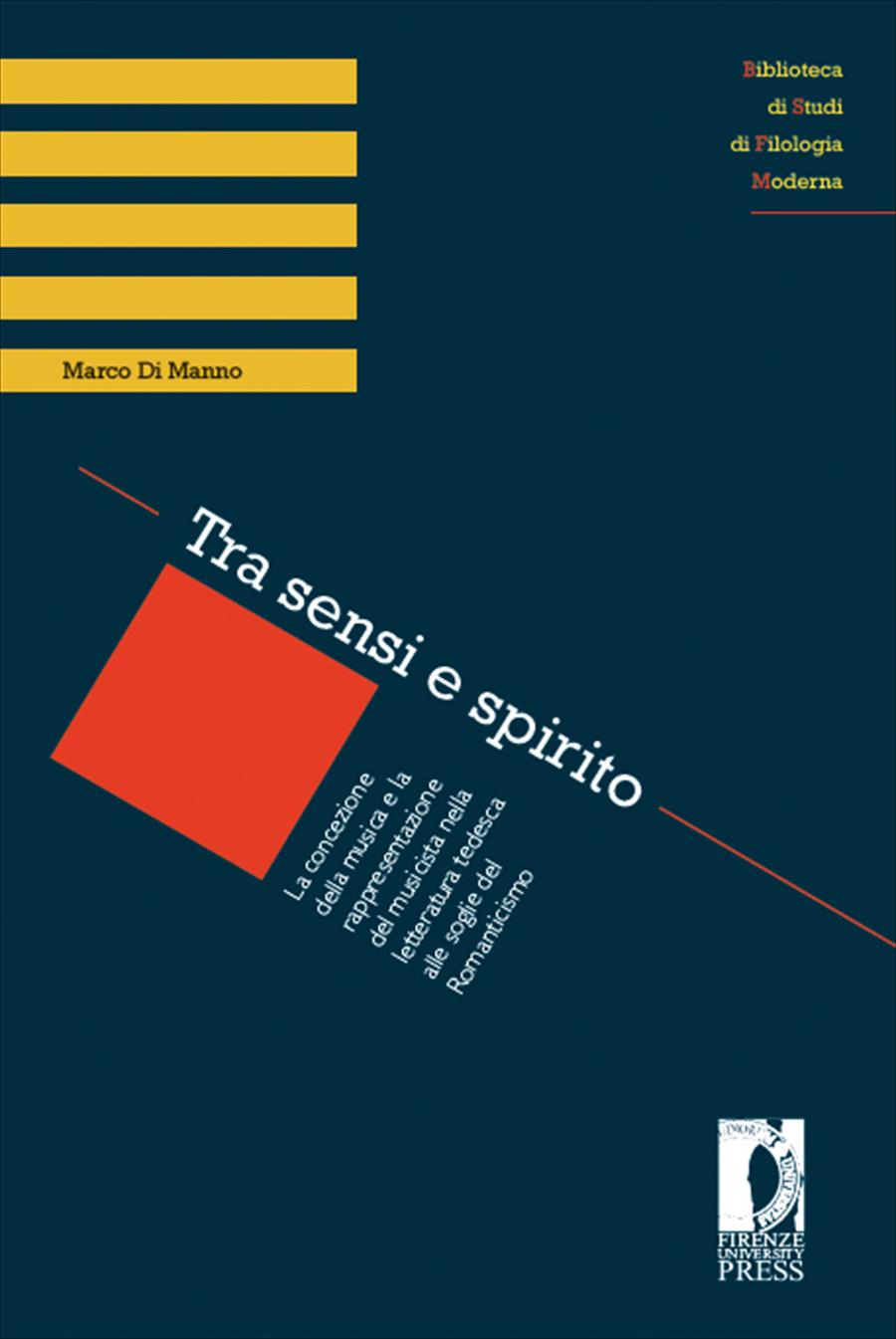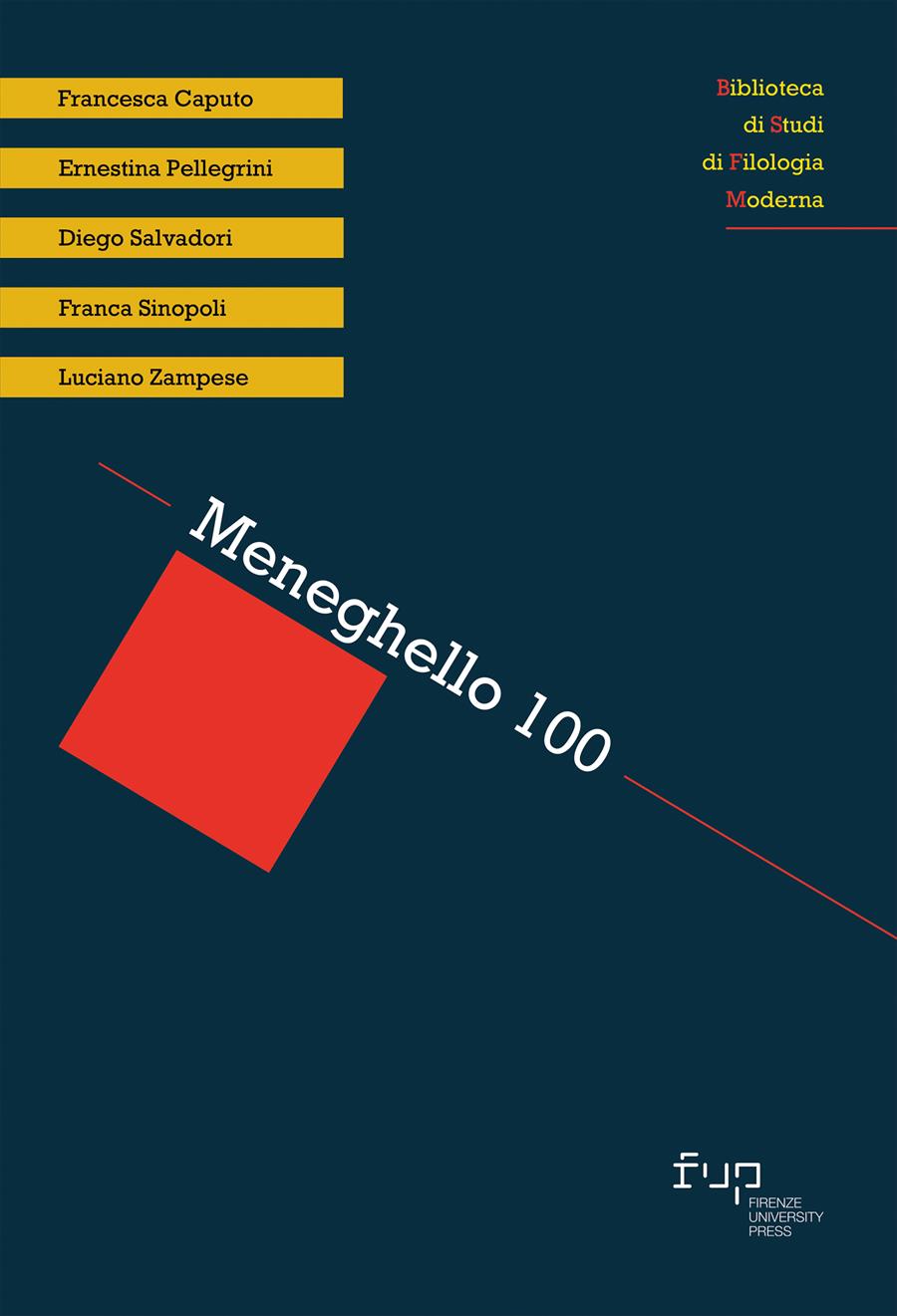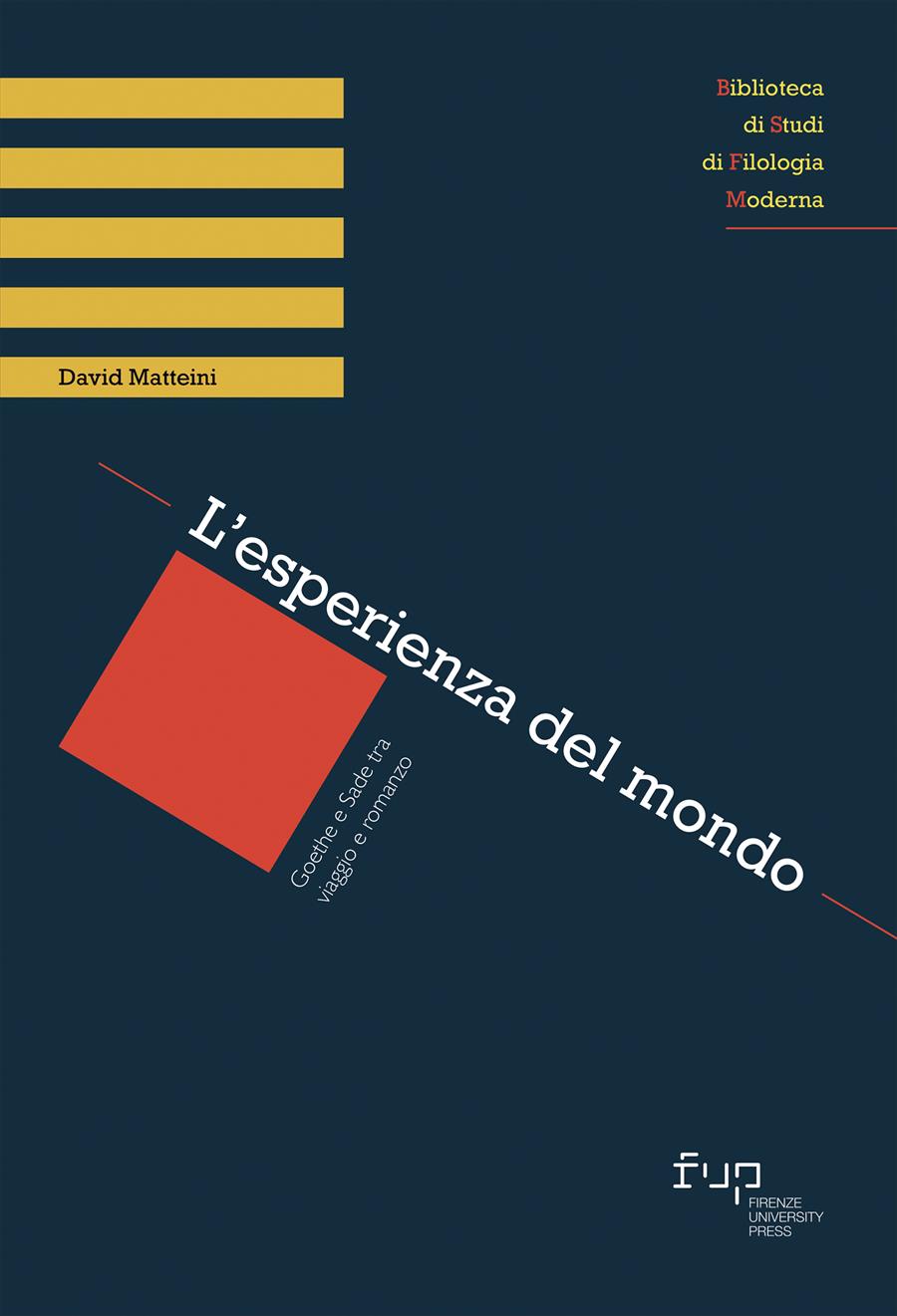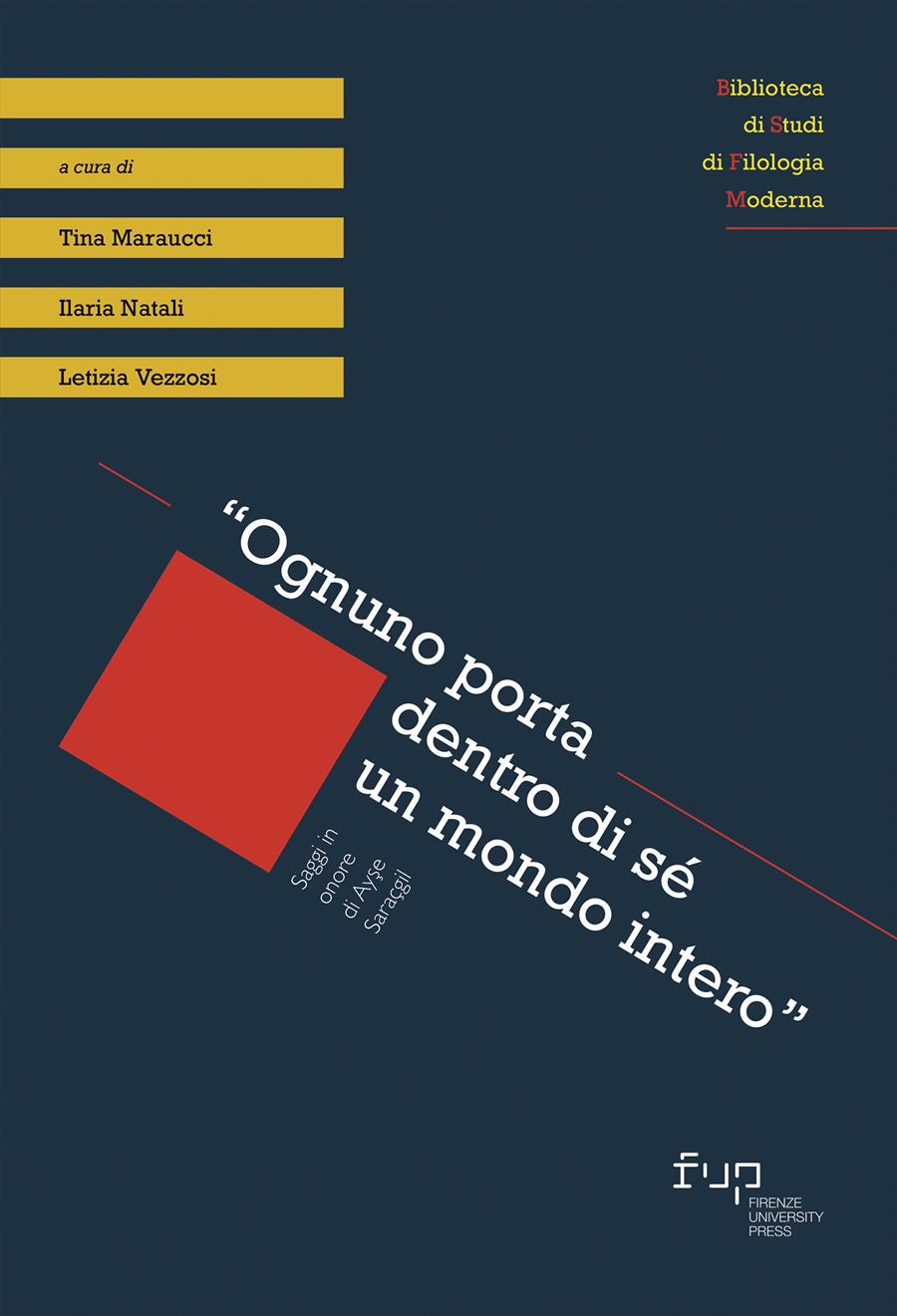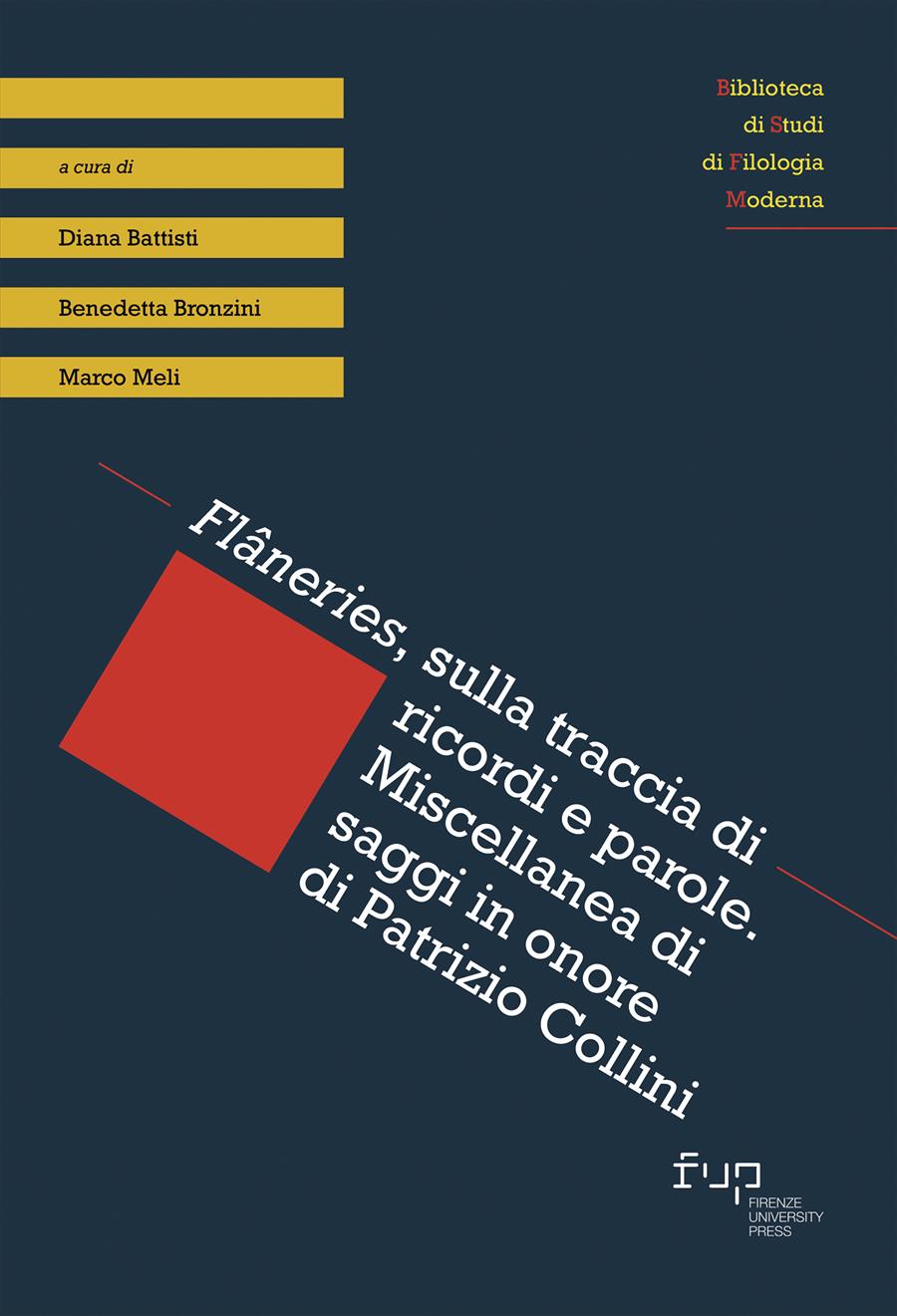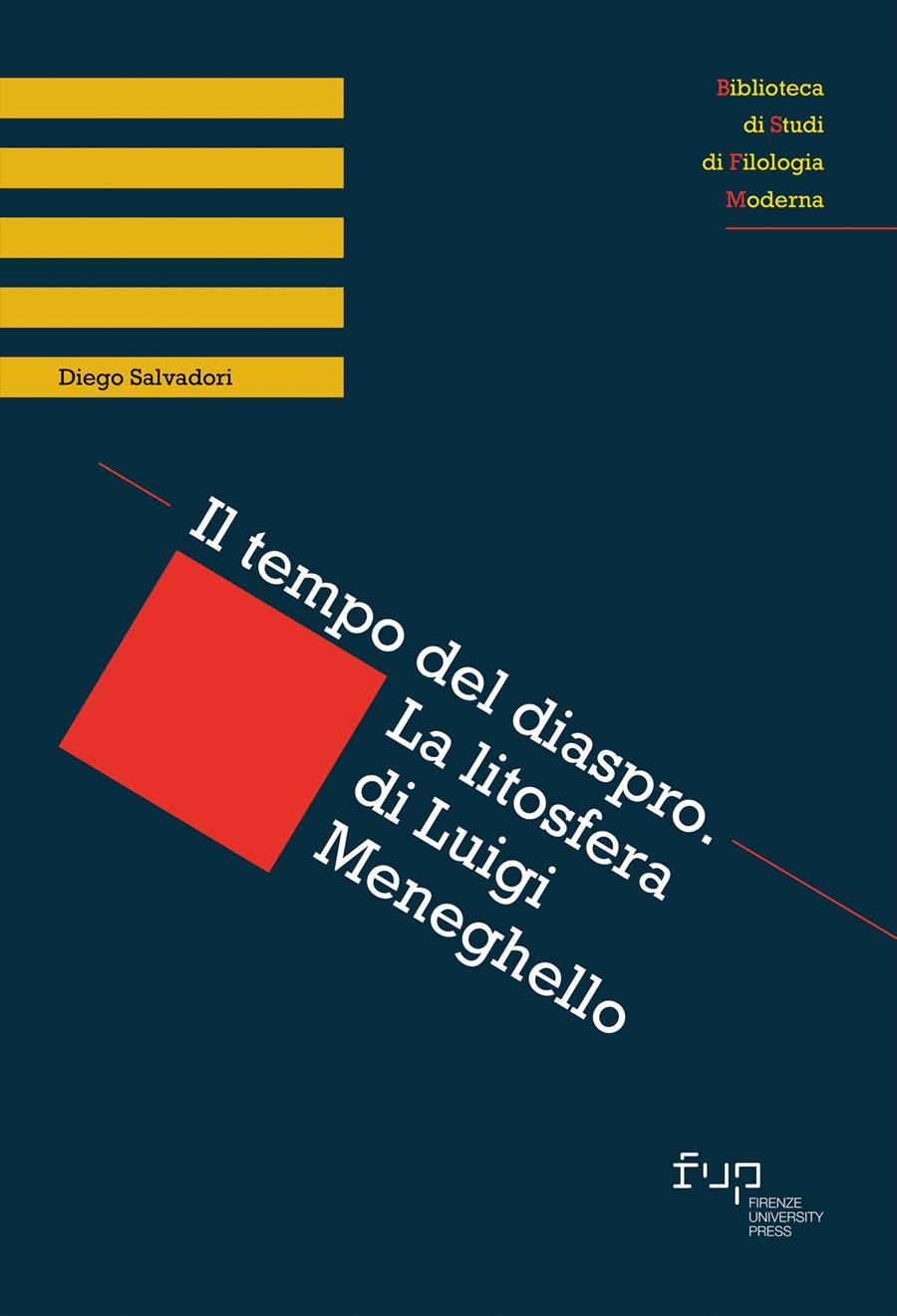Tra sensi e spirito
La concezione della musica e la rappresentazione del musicista nella letteratura tedesca alle soglie del Romanticismo
- Marco Di Manno,
Tra sensi e spirito investigates the origins of a sort of 'Copernican revolution' that took place in western culture when music acquired an undisputed primacy over the other arts, becoming the privileged medium of metaphysical knowledge, if not actually the very emblem of absolute Truth.
Starting from the analysis of the principal oppositions (between melody and harmony, word and sound, voice and instruments) emerging from the aesthetic debate that developed in the latter half of the eighteenth century, first in France and later in Germany, Tra sensi e spirito brings to light the essential ambivalence of music, in which we can discern a dual nature: sensual-erotic and mystical-spiritual. Examining these two aspects, supremely exemplified in the works of Wilhelm Heinse and Wilhelm Heinrich Wackenroder and the characters created by them, the book brings out the figure of the 'problematic' artist in a modern sense, who experiences with profound unease the ambiguity of the "criminal innocence" of the musical phenomenon: a musical phenomenon that acts at once as a redeeming and a 'narcotic' force, engendering a loss of contact with reality.
- Keywords:
- letteratura straniera,
- ottocento,
- Musica,
- Romanticismo,
- Germania,
- Open Access,
- Creative Commons,
- Series: Biblioteca di Studi di Filologia Moderna
- Scientific Board
- Language: Italian
- Subjects: German Literature
- Download PDF
-

- © 2009 Author(s)
- CC BY-NC-ND 2.5 IT
- Publication Year: 2009
- Pages: 220
- eISBN: 978-88-8453-712-6
- Content License: CC BY-NC-ND 2.5 IT
- © 2009 Author(s)
- Publication Year: 2009
- eISBN: 978-88-9273-808-9
- Content License: CC BY-NC-ND 2.5 IT
- © 2009 Author(s)
Bibliographic Information
Book Title
Tra sensi e spirito
Book Subtitle
La concezione della musica e la rappresentazione del musicista nella letteratura tedesca alle soglie del Romanticismo
Authors
Marco Di Manno
Peer Reviewed
Publication Year
2009
Copyright Information
© 2009 Author(s)
Content License
Metadata License
Publisher Name
Firenze University Press
eISBN (pdf)
978-88-8453-712-6
eISBN (xml)
978-88-9273-808-9
Series Title
Biblioteca di Studi di Filologia Moderna
Series E-ISSN
2420-8361
